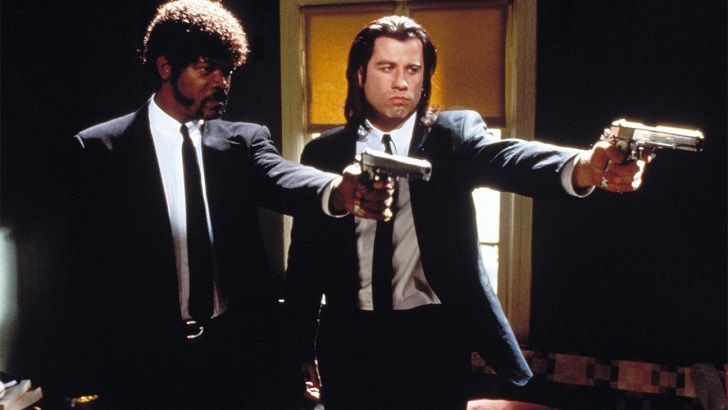Nowadays, if a movie doesn't make money on its first weekend, audiences and reviewers are eager to label it a failure or a box office dud. It's a sad reality that not every film is intended to be a huge box-office success. After all, not every film has the support of large studios that are willing to invest millions of dollars in the expectation that it would surpass the incredible $1 billion threshold. In addition, not everyone rushes to the movies on opening weekend to watch a new film.
The middle ground between huge opening weekend blockbuster hits and film office disasters is what is known as a "sleeper hit." After the opening weekend, these films rely on word-of-mouth and reviews to draw in viewers. As a result, while maybe having modest box office receipts in their first week, the figures rise over time. A fresh "sleeper hit" hasn't emerged in a while, although several big movies have.
Read on to learn more about these Hollywood hits.
Rocky

Corey Irwin/ iStock | Rocky, an American boxing film released in 1976, was the highest-grossing movie of that year, earning more than $117 million
This timeless tale of an underdog contestant, possibly the first boxing movie, has also proven to be one of the ultimate underdogs in terms of box office results and unwavering fan adoration. "Rocky," a movie with an estimated $1 million budget and a star-making performance by Sylvester Stallone, earned an astounding $225 million throughout its theatrical run.
It may be difficult to fathom why investors would find such a cherished movie that gave rise to a decades-long franchise to be difficult to sell in hindsight. However, "Rocky" had an uphill battle because of the thought of approving a movie written by and starring a mostly unknown actor, which had an ending in which the title character lost his important match. Rocky was nominated for ten categories on Oscars night and ended up winning three of them, including Best Picture.
Titanic

Paramount Pictures/ Photofes | The RMS Titanic, a luxury steamship, sank in the early hours of April 15, 1912
The titan of sleeper hits is "Titanic." Nothing comes close to it. Yes, at $28.6 million, the film had a successful debut at the top. However, that kind of start does not portend the amount of revenue that Titanic ultimately generated.
The film stunned audiences with its devastating plot and superb production standards, and positive word-of-mouth maintained it at the top of the charts for fifteen weeks in a row (it later hit number one again over Easter for a total of 16 non-consecutive weeks). With the exception of one weekend, Titanic remained at the top of the charts from Christmas through Easter. In the end, it made $600 million domestically during its initial run.
Pulp Fiction

Getty Images/ Hollywood Reporter | Pulp Fiction was the first independent film to gross over 200 million dollars
Few filmmakers made as big of an entrance on the Hollywood landscape as Quentin Tarantino. "Reservoir Dogs" made him famous in 1992, but it wasn't until the release of "Pulp Fiction" in 1994 that he became a true rock star on the silver screen. Tarantino's darkly humorous and innovative movie gave mainstream filmmaking an injection of adrenaline, revitalized the criminal genre, revived John Travolta's failing career, and solidified the careers of people like Samuel L. Jackson and Uma Thurman.
"Pulp Fiction" was undoubtedly generating buzz before its October theatrical release after its debut in May 1994 at the Cannes Film Festival, where it took home the coveted Palme d'Or. But it's safe to suppose that very few, if any, anticipated that the $8 million Miramax movie would earn more than $200 million worldwide and become an instant American classic.




